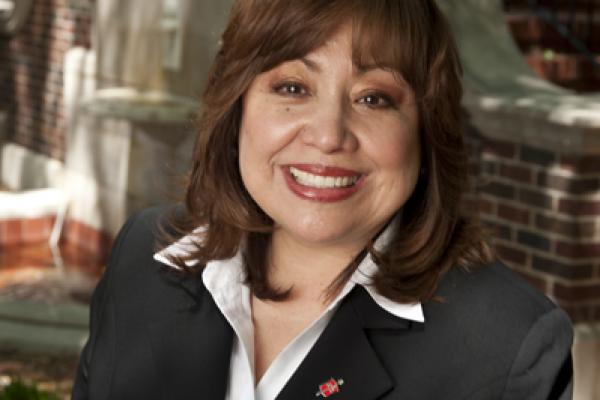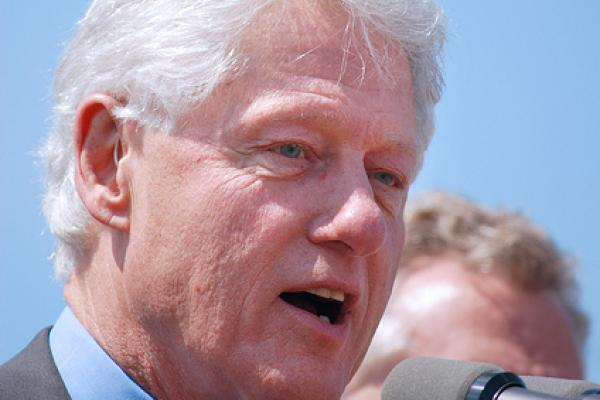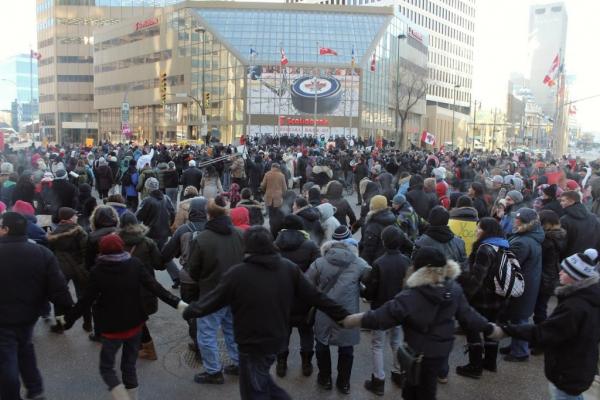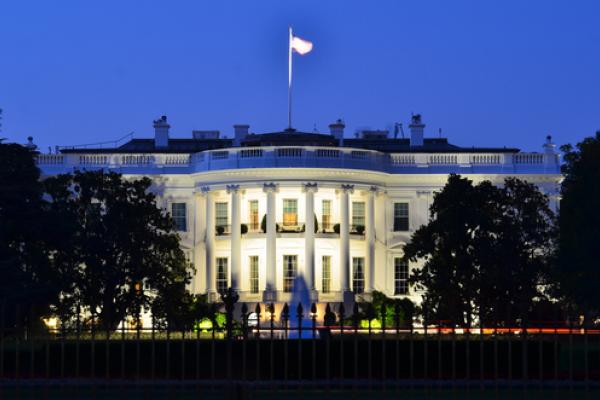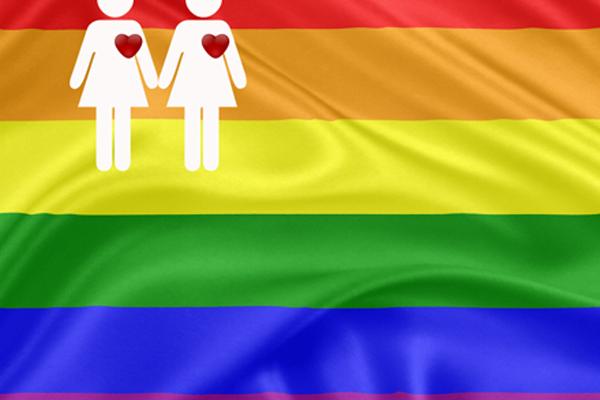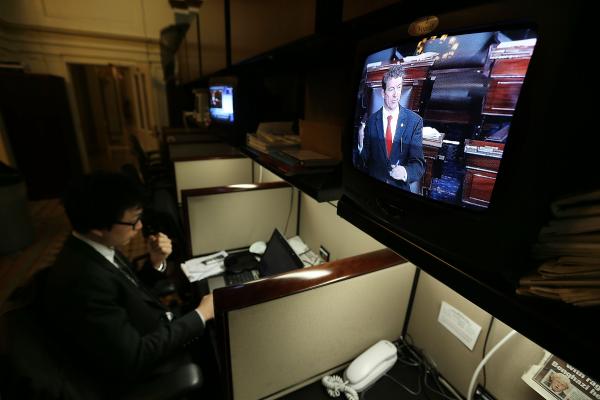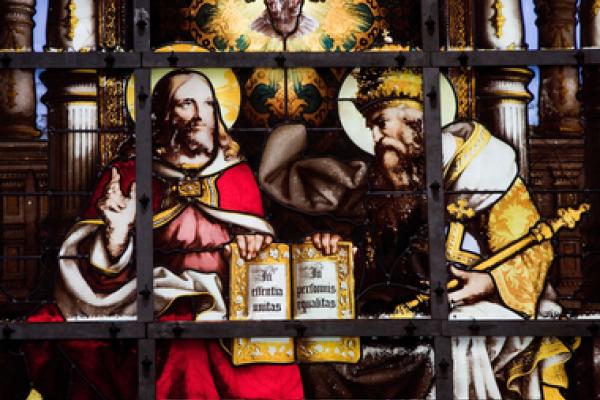When United Methodist Bishop Minerva G. Carcaño talks about tussling with political bigwigs on the topic of immigration reform, she is poised, yet forceful.
“Immigrants can stay as long as they don’t ask for more than we want to give them, and as long they keep serving our needs at whatever pittance of a pay we want to extend to them,” Carcaño said in an interview in her office here. As the first female Hispanic bishop elected in the nation’s second-largest Protestant denomination, Carcaño has had a lot of practice keeping her cool, especially when it comes to discussing divisive politics.
“When people begin to say that’s not fair, that’s not just, then that ruffles feathers.”
It’s not every day you see an ex-president ask the Supreme Court to strike down a law he signed.
The justices must decide whether the Defense of Marriage Act “is consistent with the principles of a nation that honors freedom, equality and justice above all, and is therefore constitutional,” Clinton writes in The Washington Post.
I grew up in the Canadian north of Watson Lake, Yukon. My elementary years were spent in a public school with children of the Kaska nation. As I became an adult I was pretty proud of my exposure to and knowledge of indigenous people. But it took a return to Canada after a seven-year sojourn away to make me realize that I knew very little. I did not like the discomfort I had as I walked the city centre streets in Winnipeg, Manitoba, home of the largest urban indigenous population in Canada.
It was then I decided I had to learn. Over the last two years I have pushed myself to read and sit and listen.
VATICAN CITY — The conclave to pick a new pope will begin on Tuesday the Vatican said on Friday, resolving an open question that had dogged the cardinals meeting here over the past week.
The cardinals will celebrate a special Mass “pro eligendo Romano Pontifice” — for the election of the Roman Pontiff — in St. Peter’s Basilica on Tuesday morning, and in the afternoon the cardinals will enter into the Conclave, the Vatican said.
The date was set by the cardinals gathered in a late-afternoon session on Friday. They were scheduled to vote on the decision, but there was no word on how many supported the Tuesday start date or how many preferred an earlier or a later date.
In one of his last acts before resigning on Feb. 28, Pope Benedict XVI amended the law regulating papal elections to allow cardinals to move up the beginning of the conclave, which would normally not be able to start until at least 15 days after a pope dies or leaves office.
Because Benedict resigned — the first pope to do so in 600 years — and announced his plans on Feb. 11, the cardinals did not have to focus on a funeral, as they did when John Paul II died in April 2005. They also have had nearly a month to think about a successor.
As a result, many believed the cardinals did not need to wait long after Benedict’s resignation took effect to begin the conclave itself.
In Catholic theology, as in the popular imagination, the closed-door conclave to elect a new pope is supposed to be guided by the Holy Spirit.
There’s no horse-trading or lobbying, no insider deal-making or outside influences allowed. Just red-robed cardinals solemnly entering the Sistine Chapel, accompanied only by prayers and their consciences, sitting beneath Michelangelo’s fresco of the Last Judgment and discerning God’s will on who should be the next successor to St. Peter.
At least that’s the theory. The last millennium has shown that papal elections can be fraught with politics or worse, and can take months or even years of wrangling to reach a resolution.
A meeting today of faith leaders with the president on immigration reform opened and closed with prayer.
This was my prayer at the end:
Thank you Lord, for this circle of leaders around the table and how you have brought us together to help welcome the stranger in our midst — to fix this broken immigration system that breaks families and lives.
Thank you for the leadership of Barack Obama in making comprehensive immigration reform such a high priority in these critical months ahead. Guide and direct him to find a genuine bipartisan political path to accomplish something so important that has been needed for so long. We thank you for both the Republicans and Democrats who are coming together to make that possible.
[Continued]
Five key Catholic bishops are opposing the newly authorized Violence Against Women Act for fear it will subvert traditional views of marriage and gender, and compromise the religious freedom of groups that aid victims of human trafficking.
The act, which was signed into law by President Obama on Thursday, is intended to protect women from domestic violence, sexual assault and human trafficking, and allows the federal government to spend money to treat victims and prosecute offenders.
That language disturbs several bishops who head key committees within the U.S. Conference of Catholic Bishops that deal with, among other issues, marriage, the laity, youth and religious liberty.But for the first time since the original act became law in 1994, it spells out that no person may be excluded from the law’s protections because of “sexual orientation” or “gender identity” — specifically covering lesbian, transgender and bisexual women.
While I stand with Sen. Rand Paul on the question of the use of militarized spy drones in American airspace and (potentially) on Americans, I am deeply troubled by our use of these weapons in other lands, too, where they are responsible for the deaths of hundreds of children and other innocents.
There's something dishonorable about killing without the risk associated with the act, no matter how heinous the target or valuable and beautiful the persons you put at risk in order to personally kill.
I read a lot of Trinitarian theology last semester at Duke Divinity school, most of it trying to discern how believing in a Triune God might affect the way people of different religious faiths relate to one another. The other great Monotheisms, Islam and Judaism, of course reject the Trinity as they reject Jesus as divine. But what if the Christian belief in the Triune God is the very basis on which Christians can accept Jews as Jews, Muslims as Muslims, and atheists as atheists? Different theologians have explored how the Trinity might be a good place to ground a Christian theory of religious pluralism. S. Mark Heim has gone so far as to say that God’s own inner diversity shows God’s intention for a diverse humanity, even including religious diversity. In other words: People might believe in a non-Trinitarian God because they were made by a Trinitarian God. Mind-blowing.
I wasn’t expecting to find resonance in Charles Darwin, whose name has been used in so much anti-religious fervor. But in his 1857 letter to Asa Gray, Darwin wrote about the “principle of divergence” and how “the same spot will support more life if occupied by very diverse forms.” We might not want to make a precise analogy to human society when Darwin concludes that “each new variety or species, when formed will generally take the place of and so exterminate its less well-fitted parent.”
That line of thinking could easily lead us to euthanasia. But, taken with his observation that diversity fosters life, we might say that co-existence with others forces a species to adapt, and everyone is better for it. Consider the converse of Darwin’s statement: The same spot will support less life if occupied by a unitary form. There is something life-giving – Heim might say “divine” – about difference.
